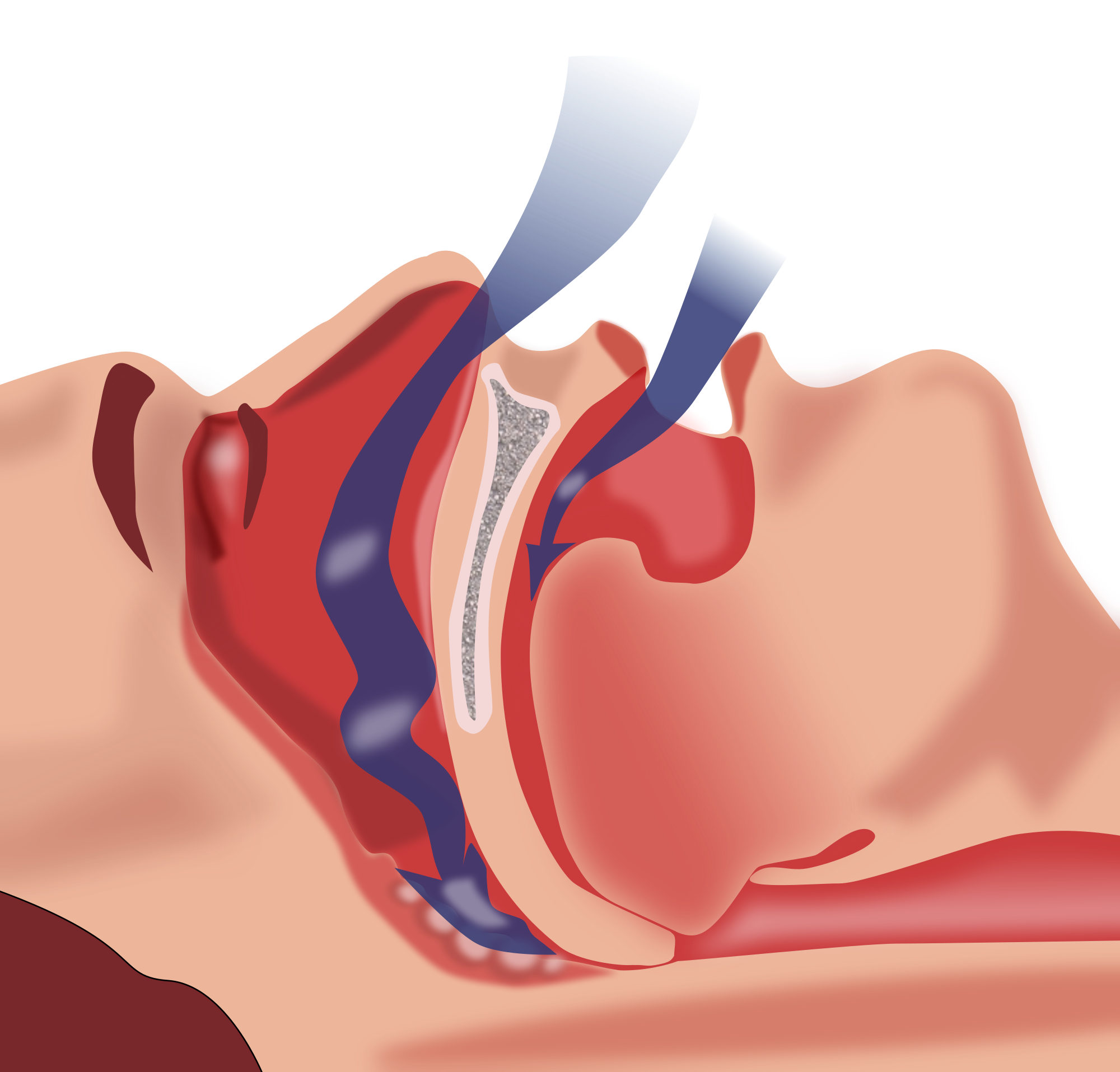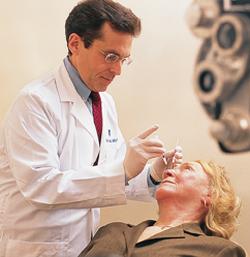Based on the resonance location system (echo) used by bats and dolphins to navigate, Marco Antonio Trujillo Tejeda and Cuauhtli Padilla Arias, mechatronic engineers from the Tec de Monterrey in Mexico, devised a bracelet that makes mobility simpler and safer for the blind.

Retina India is a not-for-profit organization, registered with the Charity Commissioner, Mumbai, India, established for empowering people with retinal disorders, and bringing them and their families on a common platform with physicians, researchers, counselors, low vision and mobility experts and other specialists.
Saturday, November 21, 2015
Monday, October 5, 2015
Ocular treatment likely to become first Gene Therapy approved in US
 |
| (c) nature.com |
Labels:
Gene therapy,
Spark Therapeutics
Saturday, August 29, 2015
AMD likely to be more in people with deficient vitamin D status
A multi-institutional team reports that vitamin D may play a
significant role in eye health, specifically in the possible prevention
of age-related macular degeneration, or AMD, among women who are more
genetically prone to developing the sight-damaging disease.
In a paper published in JAMA Ophthalmology online, the team found that women who are deficient in vitamin D and have a specific high-risk genotype are 6.7 times more likely to develop AMD than women with sufficient vitamin D status and no high risk genotype.
In a paper published in JAMA Ophthalmology online, the team found that women who are deficient in vitamin D and have a specific high-risk genotype are 6.7 times more likely to develop AMD than women with sufficient vitamin D status and no high risk genotype.
Labels:
Age-related,
Gene,
Macular Degeneration,
Vitamin D
Wednesday, August 26, 2015
Clinical Trial utilizing optogenetics to start for Retinitis Pigmentosa soon
 |
| (c) nature.com |
Labels:
Clinical Trial,
Optogenetics,
Retinitis Pigmentosa
Saturday, July 4, 2015
Microglia - a potential therapeutic target in Retinitis Pigmentosa
Spider-like cells inside the brain, spinal cord and eye hunt for invaders, capturing and then devouring them. These cells, called microglia, often play a beneficial role by helping to clear trash and protect the central nervous system against infection. But a new study by researchers at the National Eye Institute (NEI) shows that they also accelerate damage wrought by blinding eye disorders, such as retinitis pigmentosa.
Labels:
Clinical Trial,
Research,
Retinitis Pigmentosa,
Treatment
Saturday, June 27, 2015
World's first-ever braille tablet has been developed
The first-ever braille tablet has been developed, using a new liquid-based technology to create tactile relief outputting braille, graphics and maps for the blind and partially sighted.
Labels:
Accessibility,
Braille,
iPAD,
Tactile
Berkeley Architect sustains his vision despite blindness
Oh, that we could see as clearly as blind architect Chris Downey. Leading his UC Berkeley seminar students to equitable, barrier-eliminating design solutions or consulting on a 170,000-square-foot blind rehab center at the Veterans Affairs center in Palo Alto or filling the stroke seat on his East Bay Rowing Club team, the 52-year-old Piedmont architect and teacher says he lacks sight, but is not without vision.
Labels:
Architect,
Blind,
Blindness,
Inspiration
Tuesday, June 23, 2015
Tablet computers for the blind in development
Is Braille on the way out? Do we have enough interest in teaching Braille to visually impaired students? Considering some of the subject matter cannot be explained to them by voice, are there any attempts to make this means of communication more accessible via smartphones and technology in the current age? Surprising to some, there are attempts being made to develop this technology to help the visually impaired students.
Labels:
Accessibility,
Blind,
Blindness,
Braille,
Disney,
Haptics,
iPhone,
Smartphone,
tablet,
technology
Intas launches RAZUMAB, the first biosimilar to Lucentis (ranibizumab)
Saturday, May 9, 2015
Students in Birmingham develop a smart cane for the blind
A revolutionary ‘smart’ cane enabling the visually impaired to instantly identify friends and family could be available soon, thanks to students at Birmingham City University.
Thursday, April 23, 2015
Wednesday, April 22, 2015
Converting rods into cones in a model of retinitis pigmentosa (RP) rescues retinal degeneration
Heritable retinal degeneration is a common cause of visual impairment and blindness, affecting millions of people worldwide. Many research groups have focused on targeted gene therapy as a treatment for these diseases. However, inherited retinal diseases can be caused by mutations in any one of more than 200 genes, and the pathogenic mechanisms of various mutations differ greatly. This was the motivating factor in the work by Dr James C Corbo and his team at the Washington University School of Medicine to develop gene-independent therapies that would be more widely applicable. This work has been published in the Proceedings of the National Academy of Sciences.
Blind candidates to get extra 20 minutes per hour in HPSC exams
Coming to the aid of a blind candidate, the state commissioner for persons with disabilities has directed the Haryana Public Service Commission (HPSC) to give additional 20 minutes per hour to blind candidates appearing in competitive examinations conducted by the Commission.
Tuesday, April 14, 2015
Study challenges conventional wisdom that sight-based brain sensory network is impaired with blindness
Is visual input essential to how the topographical map of the visual cortex develops in the human brain? In a new research, scientists at the Hebrew University of Jerusalem, and those from in Germany and USA, show that the way in which the brain organizes its visual sense remains intact even in people who are blind from birth.
Labels:
Blind,
Blindness,
sight,
Visual cortex
New clinical trial utilizing stem cells for retinitis pigmentosa
ReNeuron has announced that it has filed application with the US FDA to commence Phase I/II clinical trial in the US with its stem cell therapy candidate for the blindness-causing disease, retinitis pigmentosa. The clinical trial will be evaluating its human Retinal
Progenitor Cell therapy candidate for retinitis pigmentosa.
Labels:
Clinical Trial,
Retinitis Pigmentosa,
Stem Cells
Wednesday, January 28, 2015
New development in the race to bring bionic eye closer to patients
A French company called Pixium Vision is testing a system called Iris that promises to improve the vision of the blind.
Labels:
ARGUS-II,
bionic,
Bionic Eye,
Blind,
Blindness,
Camera,
clinical,
Computer,
FDA,
Navigation,
restoration,
Retinitis Pigmentosa
Tuesday, January 27, 2015
A major advance in gene therapy for Retinitis Pigmentosa
A paper published in Nature Communications sheds light on why, until now, it has not been possible to effectively restore vision in rd1 mice – the world’s major model for retinitis pigmentosa (RP). This research also demonstrates how a particular type of mutation in this mice was the cause of failure of previous gene therapy attempts.
Labels:
animal model,
Blind,
Blindness,
Cones,
Degeneration,
Gene therapy,
LCA,
Retinitis Pigmentosa
Friday, January 23, 2015
Legally Blind Mom Sees New Baby With Special Eyewear
A specialized piece of eyewear gave a legally blind woman from Ontario, Canada, the opportunity to do something that new parents may take granted — see her baby hours after his birth.
Labels:
Bionic Eye,
Blind,
Blindness,
Glasses,
Stargardt's
Thursday, January 22, 2015
Results from AREDS-2 clinical trial & what it means for you
Age-Related Eye Disease Study (AREDS) and Age-related Eye Diseases Study-2 (AREDS-2) were landmark studies in providing a clue to show benefit from nutritional supplements. The article below, from Retina India's newsletter from 2013, is still relevant today to patients of Age-related macular degeneration.
Labels:
Age-related,
AMD,
AREDS,
AREDS-2,
Degeneration,
dry AMD,
Macular Degeneration,
wet AMD
Students build sonar based watch for helping the blind to navigate
When a biologist who studies bats and a computer scientist cross paths, amazingly cool things can happen. Cool things such as a sonar device to assist the visually impaired.
Labels:
Accessibility,
Blind,
Blindness,
Disability,
Dog,
Navigation,
Sonar
Wednesday, January 21, 2015
Does a full vision restoration happen after treatment from being blind from birth?
A partial restoration of sight is possible in individuals blind from birth, thanks to the most recent advances in research. However, a group of researchers of the Mind/Brain Center of the University of Trento and of the University of Montréal in Canada have discovered that the functional reorganization of the brain happens in individuals who, for a long period, experienced a long sense deprivation, which could potentially impede complete sight restoration.
Labels:
bionic,
Bionic Eye,
Blind,
Blindness,
brain,
restoration
Monday, January 12, 2015
Delhi University developing mathematical kits for visually impaired kids
To make solving numerical problems less taxing for visually-impaired students, Delhi University is developing specialised 'mathematical kits' which will make it much easier for them to study the subject.
The varsity plans to carry out a campaign across the country during which students and teachers will visit various blind schools where it will distribute the kits to the students and conduct workshops to teach them how to use it.
Labels:
Accessibility,
math,
Mathematics,
Students,
study,
University
Saturday, January 3, 2015
Poor Avastin responders in AMD & DME may have increased risk to obstructive sleep apnea
 |
| from Wikipedia |
Poor responders to Bevacizumab (Avastin) in patients with age-related macular degeneration (AMD) and diabetic macular edema (DME) may have increased risk to obstructive sleep apnea (OSA). To read more, click here.
Labels:
Age-related,
AMD,
Apnea,
avastin,
Bevacizumab,
Diabetes,
Diabetic macular edema,
Macular Degeneration
Subscribe to:
Posts (Atom)



